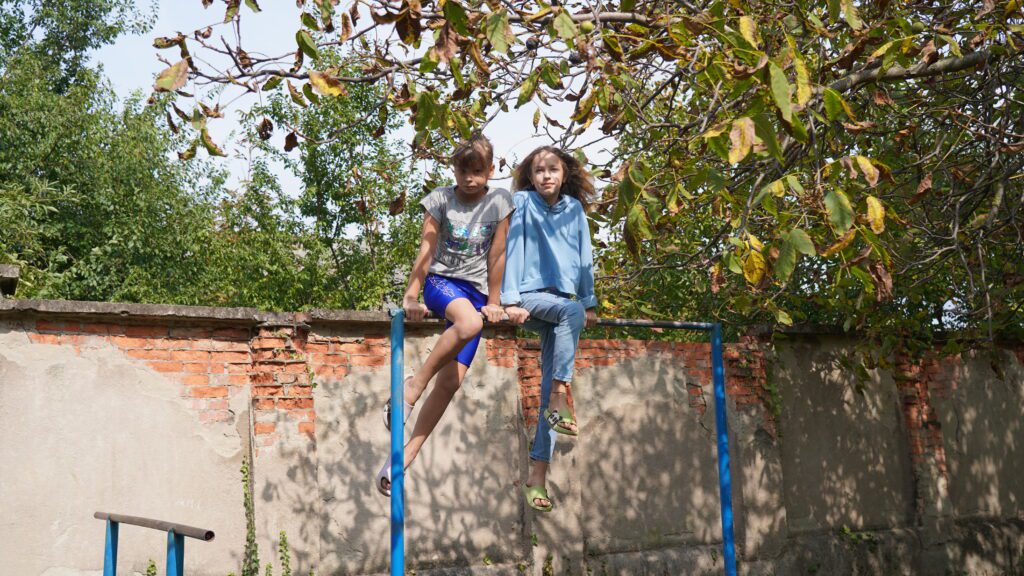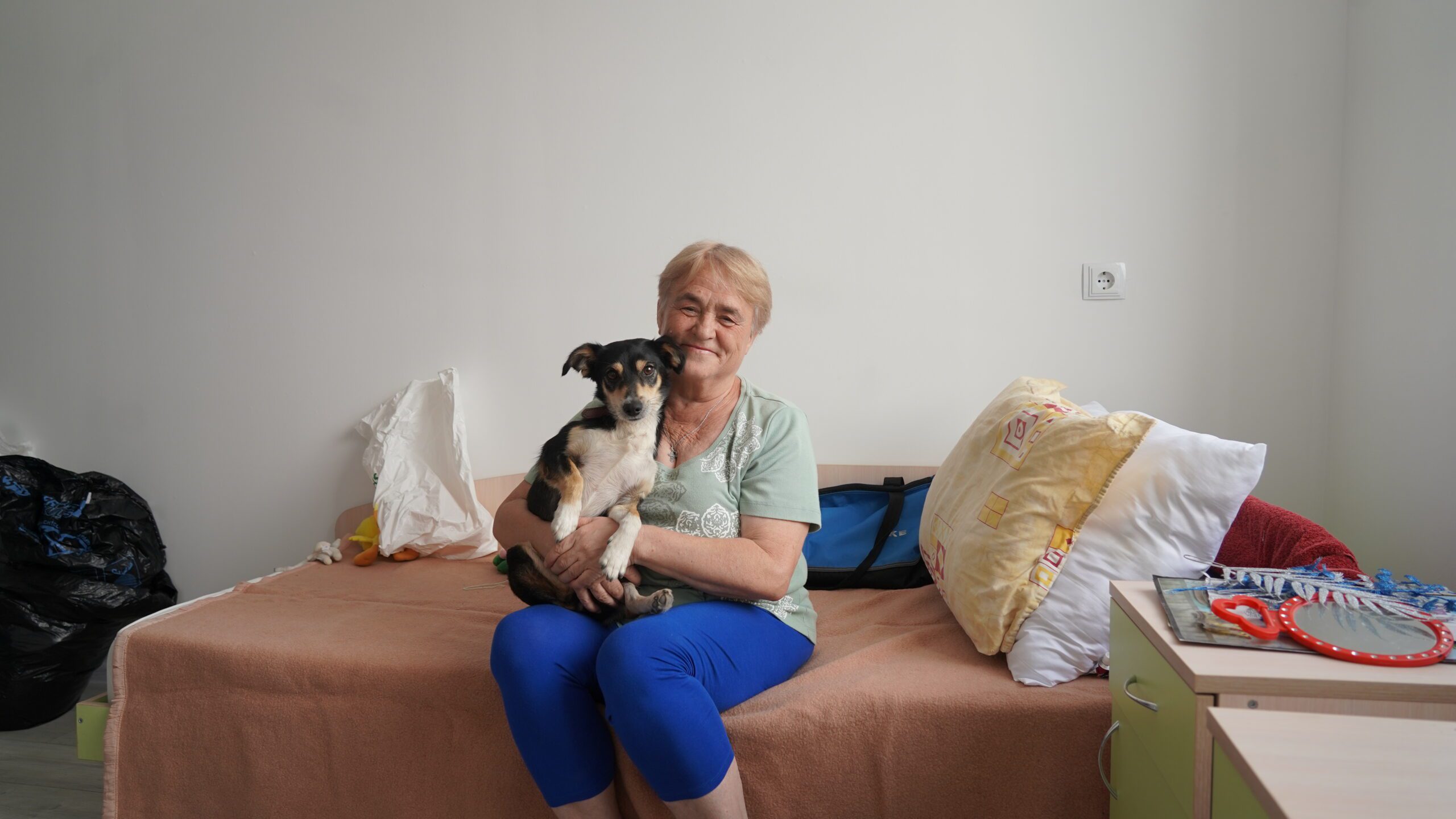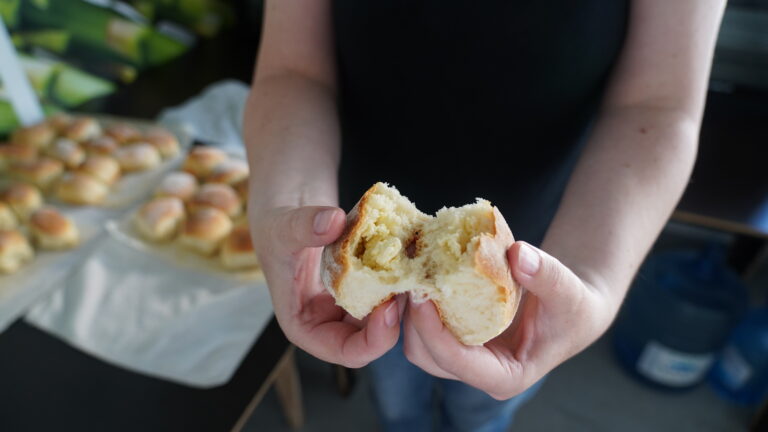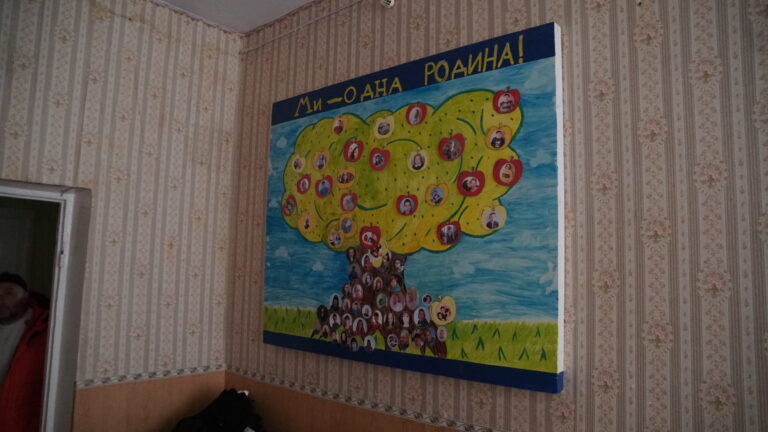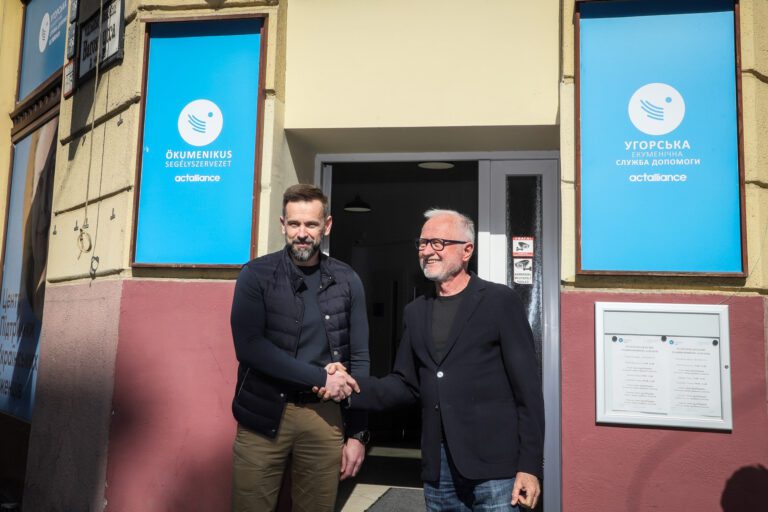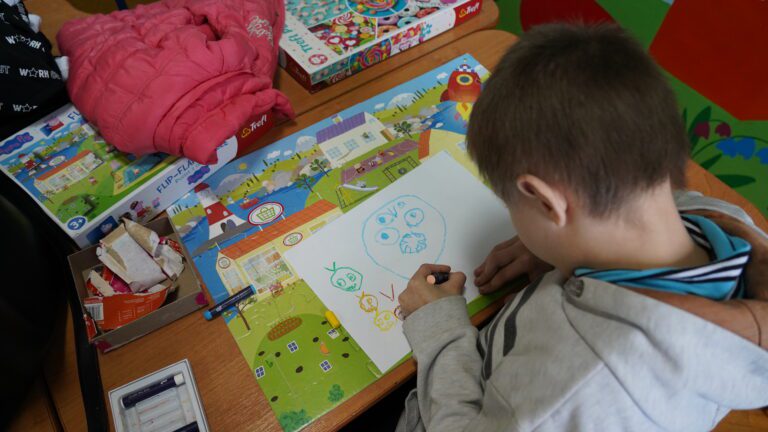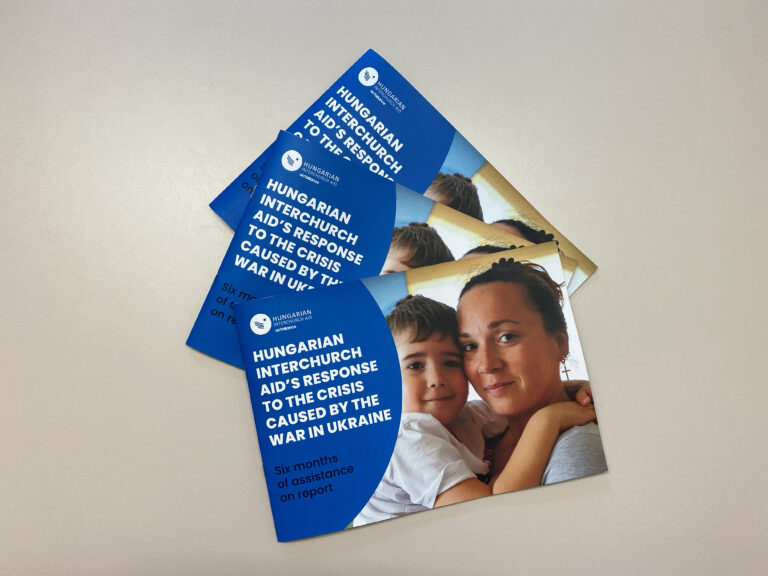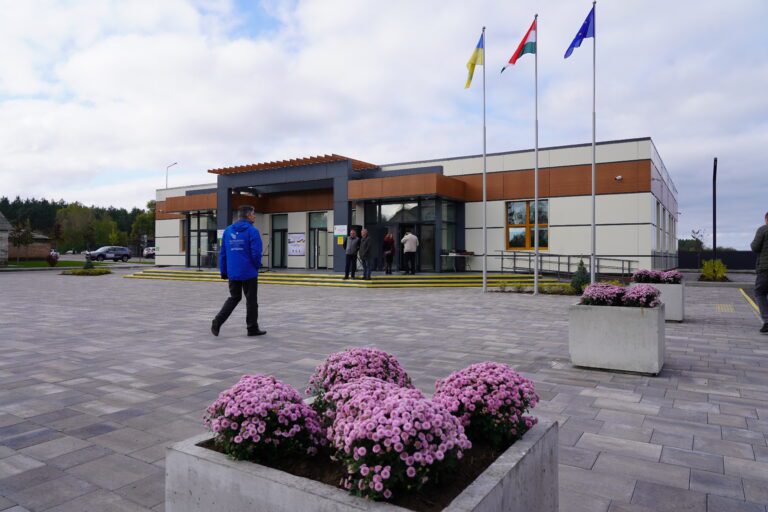A new home for the displaced of Vynohradiv
Lyuba and Vlada were one of the first people to move into a shelter completely renovated by Hungarian Interchurch Aid (HIA) thanks to funds provided through ACT Alliance’s Ukraine appeal. Work started on the once dilapidated dormitory following requests by Vynohradiv’s municipality in the spring of 2022 – and in September 2023 the building was reborn as a modern community shelter and handed over to the municipality. The new community shelter has 54 rooms on three floors, with 2 kitchens, toilets and showers on each floor. It is capable of accommodating 150-200 people, depending on the composition of families.
Before, both of the women lived in a different dormitory-turned-shelter built during the nineteen-sixties by Soviet authorities – and while none of them want to criticise their former place of residence, given the possibility to move into a new shelter with modern amenities it was without question that they’d move on an instant.
Vynohradiv is located in Zakarpattia, in the extreme west of Ukraine. Here, war is a different reality to what other regions of Ukraine experience: With no combat events and only a single missile strike since the Russian Federation invaded Ukraine in February of 2022 the region became a safe haven for displaced people hesitant to leave their country. According to official sources from May 2023, more than hundred thousand have officially requested IDP status in Zakarpattia since the start of the war. Many of them have since found accommodation privately, however the most vulnerable of them still have to resort to living in community shelters.
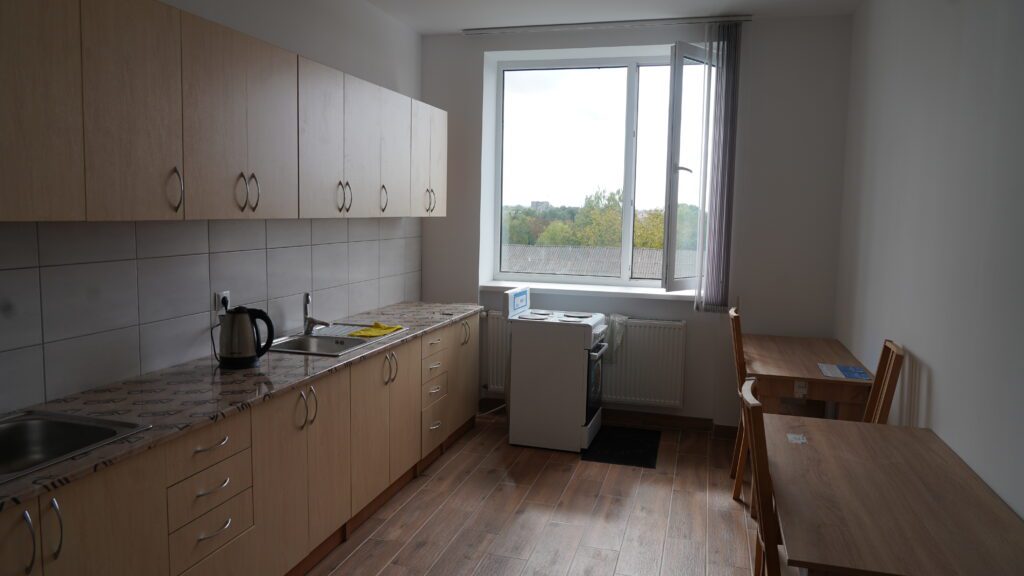

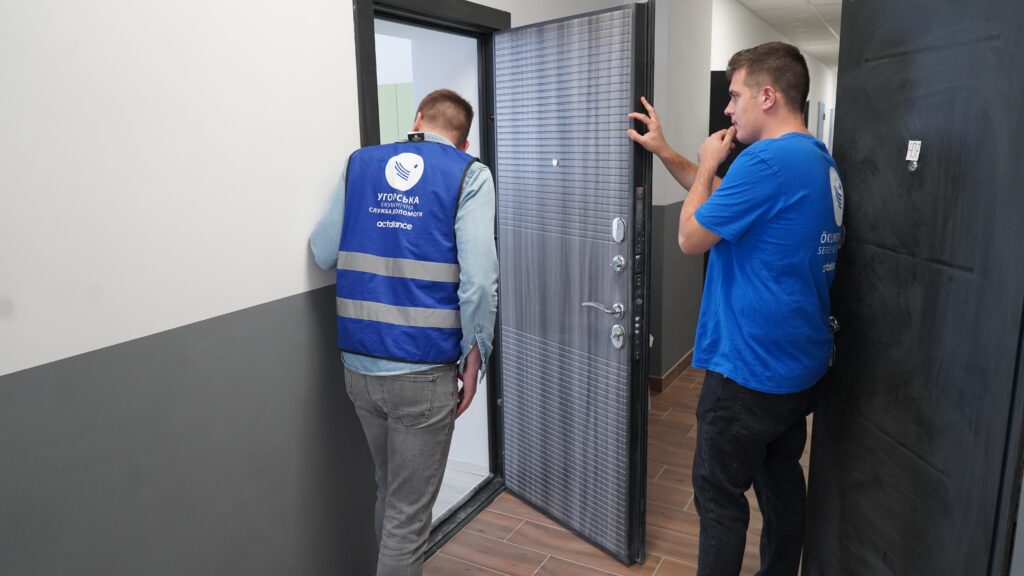

Life in such shelters is not easy, but Lyuba – a pensioner originally from Vuhledar, a town infamous for the many battles fought over it – is not one to complain. Even when talking about the home she had to leave, she smiles confidently. “I just renovated the apartment before the war. I bought and updated all the home appliances, bought a washing machine and a new refrigerator. My son, who lives with me now, installed floor heating in the apartment as well as new doors. We made major repairs. But back in 2022, Russian soldiers took everything out of our apartment and robbed us completely, ‘liberating’ our apartment from all goods.”
She was evacuated under heavy artillery fire. “I could have stayed in my hometown, but my son was serving in the Ukrainian army at the time of the war, and he insisted on moving to a safe place for me.” While Vynohradiv – where she in the end arrived in March last year was safe – conditions were nevertheless suboptimal. “It was good that I just had a roof over my head. I don’t want to say anything bad about that place.”
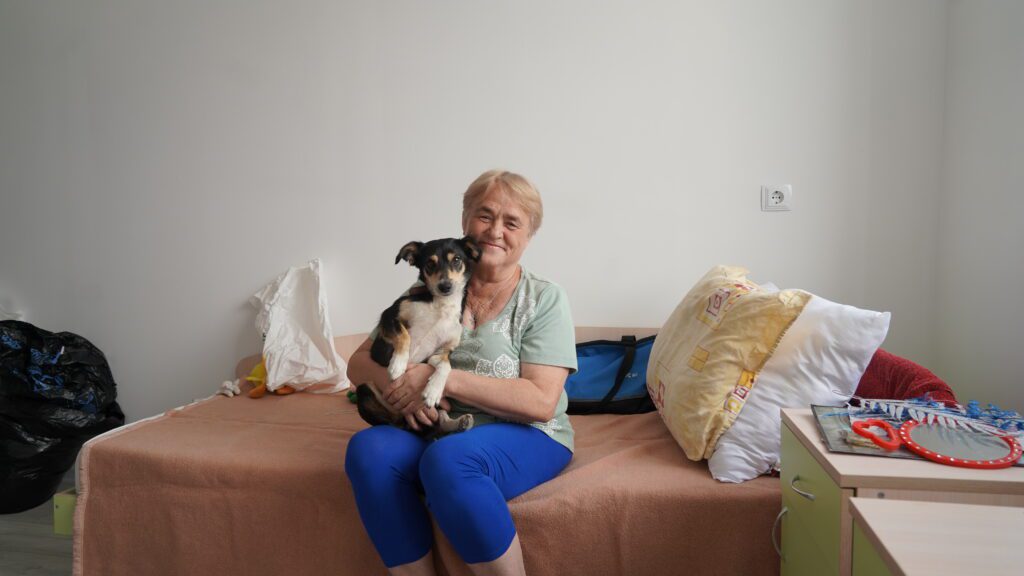

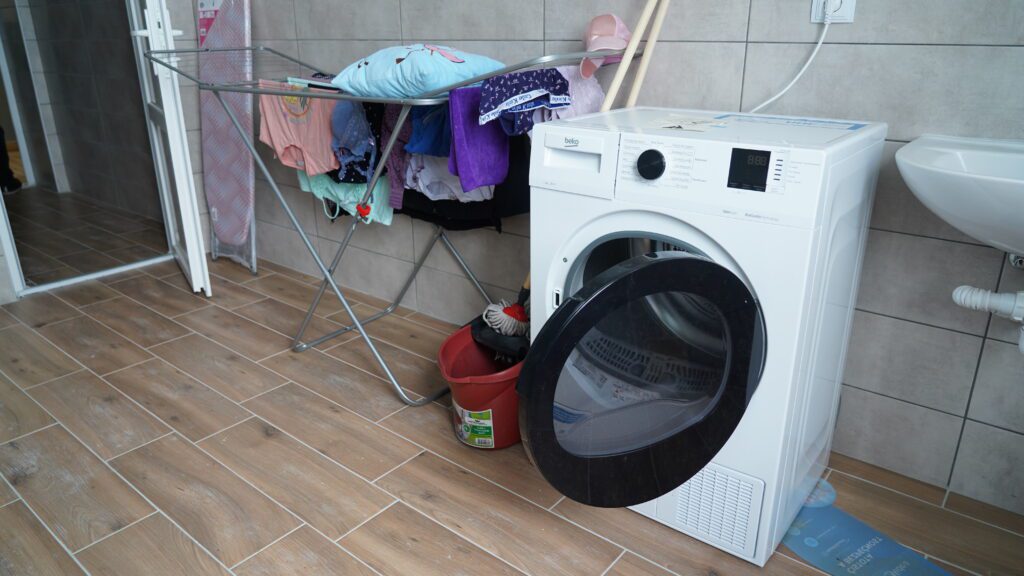

Vlada is from Kramatorsk, a city in close vicinity to the frontlines in the east of Ukraine. She arrived in Zakarpattia with her whole family, and finally found shelter in the city of Vynohradiv. “The conditions were unpleasant to say the least, but we had no other choice. Renting an apartment for a family like ours – 5 children (three of mine and two of my sister’s), our mother who also lives with us, helps with the children and the household, and our husbands – we are not able to afford the spacious housing we had in our native Kramatorsk.”
Staying in the old dormitory of the technical school was a compromise, as the living conditions were difficult. “When I wanted to open a window to ventilate the room, the window frame almost hit me. There were big gaps under the window sill and around the windows, and it was very cold, because it was still a cold spring outside. At the beginning, we lived 5 people in one small room. I was very worried about the children when I went to work, because there were bare electrical wires sticking out of the walls, only one shower located on the first floor, without curtains and with broken water taps.”
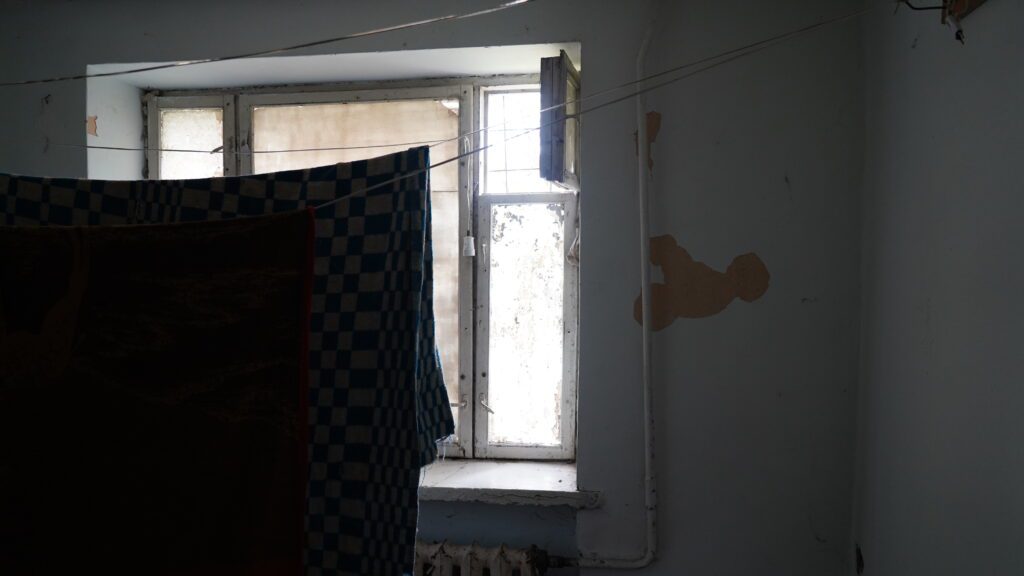

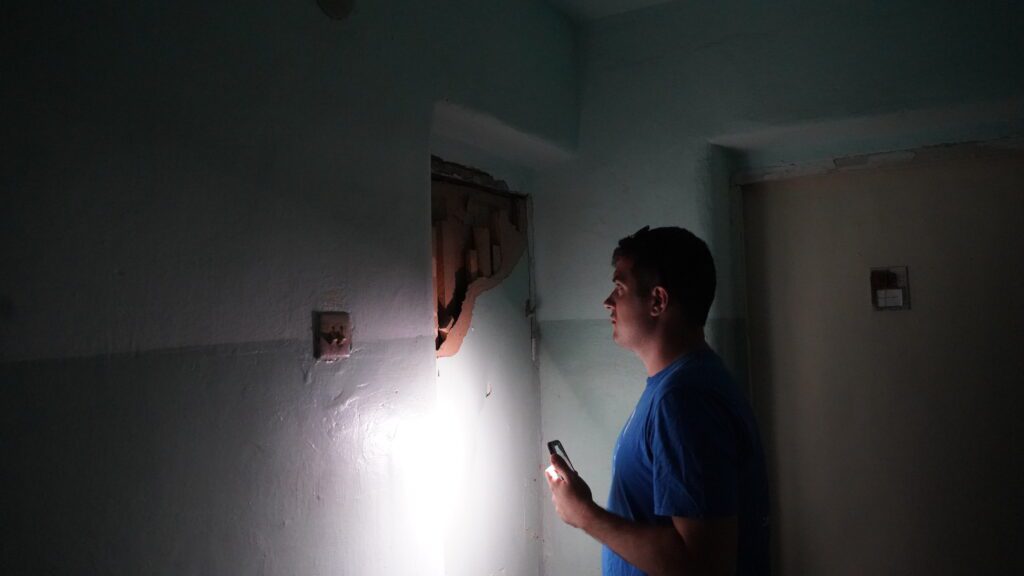

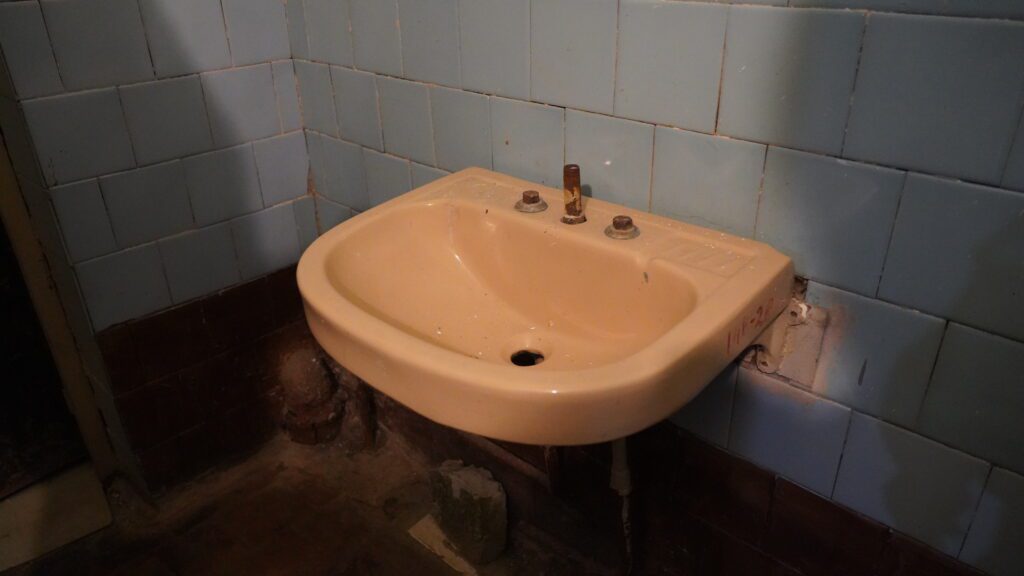

Given the hardships faced by many of those who had to resort to living in community shelters in the region, it was crucial for Hungarian Interchurch Aid to finish reconstruction as soon as possible – meaning that structurally, this is still the same building as it was before. Rooms were originally planned to host two students when the building was new, now they need to host larger families, such as Vlada’s, too. Difficult situations had to be diffused since the building is now is officially operated by the municipality, and HIA had to mediate between displaced residents and the local government.
The aim of the municipality was to sustain the comfortability of the shelter for the families moving in, but what sounds reasonable sitting behind a desk is sometimes unfit for the challenges of real life. Original rules allowed no pets, no overcrowding of the room with belongings and only three beds per rooms. This put Vlada between a rock and a hard place, as her family wanted to move into the modern shelter, but not at the cost of separating from the family’s pets. In the end thanks to mediation the situation was resolved. “I took my pets out of the bombarded Kramatorsk, and now I have to throw them away or give them to a pets’ centre? Finally, we agreed that I would reimburse the damage if our animals or children somehow ruin [the new furniture].”
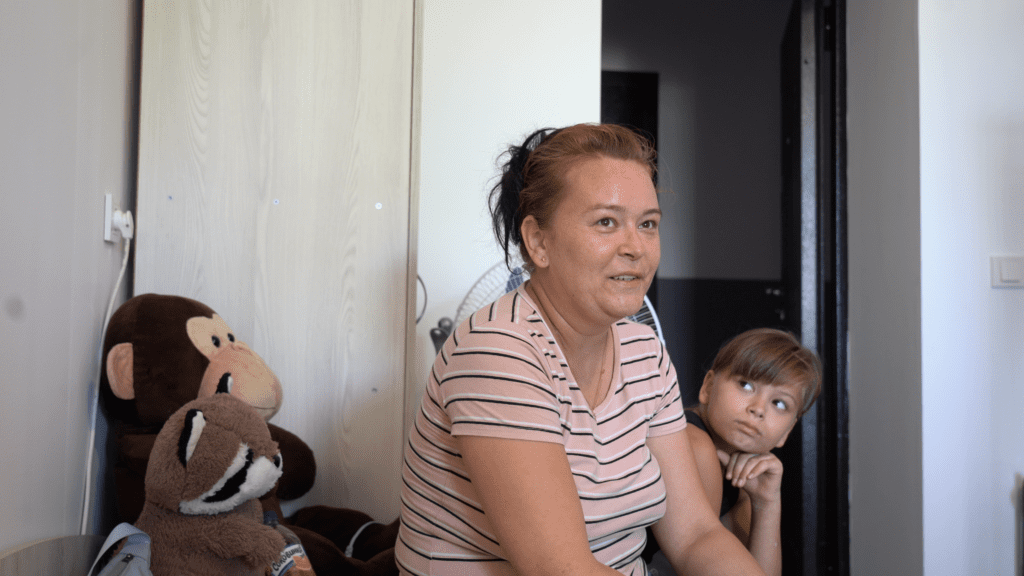

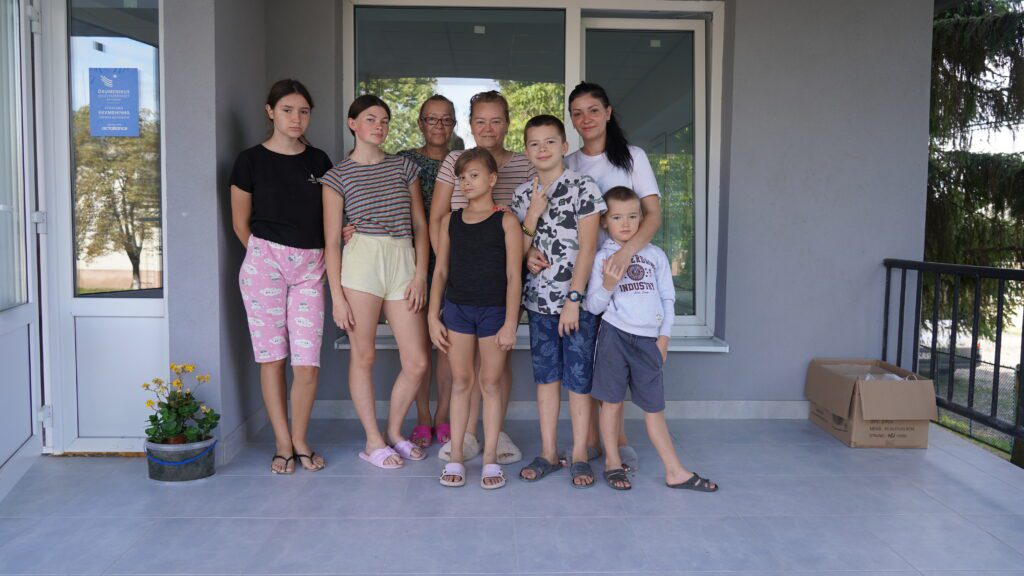

Fortunately, there are no hard feelings, especially since her children love being here. “We did not expect such comfort. We thought we would live in the old shelter until the end of the war and then go home. But when we finally got into the restored shelter, the first thing my daughter said was “Mom, I want to live here forever!” While for a moment this seems like a happy statement, it is heart-wrenching to think that what would be a regular dormitory in Europe with limited space for a family would prompt a child to make such a statement.
Vlada gets really excited about the smallest things – putting the two accommodations in perspective. “Just now I plugged the kettle in – I didn’t get zapped, I’m so happy! I spent the whole day yesterday cooking in the kitchen, washing dishes. It’s such happiness to be able to wash the dishes at any time all day long, because now hot water is flowing from the tap around the clock. There is no need to heat water in a bucket to wash the dishes. My sister and I have a whole horde of children, and we had to take care of the most basic things – their hygiene. The washing and dryer machines are new – it’s much easier to wash all the clothes and dry them very fast!”
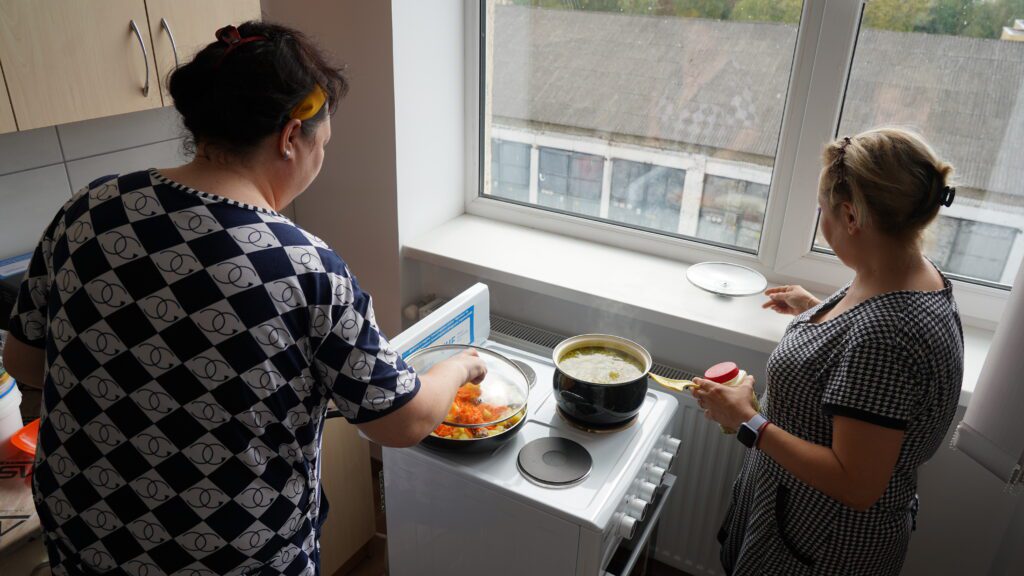

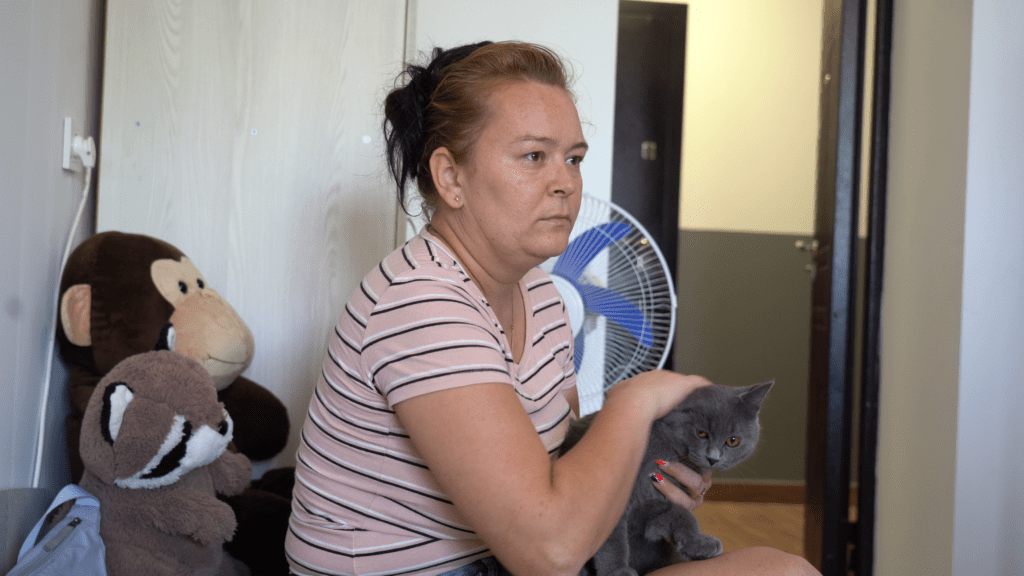

She is also happy with the hygiene and comfort situation of the new shelter. “There are comfortable beds with brand new mattresses. In the old shelter, the only thing that was missing was bedbugs and cockroaches. Otherwise, the conditions were terrible – the bed crashed under me when I first sat down on it. The mattresses were had stains of urine and whatnot. Here I feel comfortable going to the closet because there is a door, the toilets are new, the walls are all light and clean, it doesn’t stink. The shower is round-the-clock, not 2-3 hours a day as before! There are new wardrobes, the furniture does not fall on me like it did in the old shelter.”
With the new shelter in Vynohradiv, life for the city’s displaced seems to have made a turn for the better. However, the challenges faced by some displaced families serve as a reminder that while humanitarian organizations play a crucial role in improving living conditions, the need to consider beneficiaries’ special needs may be just as important as providing those things humanitarians believe are good for them. Vlada’s daughter’s innocent wish to “live here forever” serves as a poignant reminder that even in the most challenging circumstances, a safe and comfortable place to call home can make all the difference.
The project was funded through ACT Alliance Appeal UKR221 and implemented by Hungarian Interchurch Aid.
